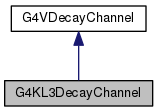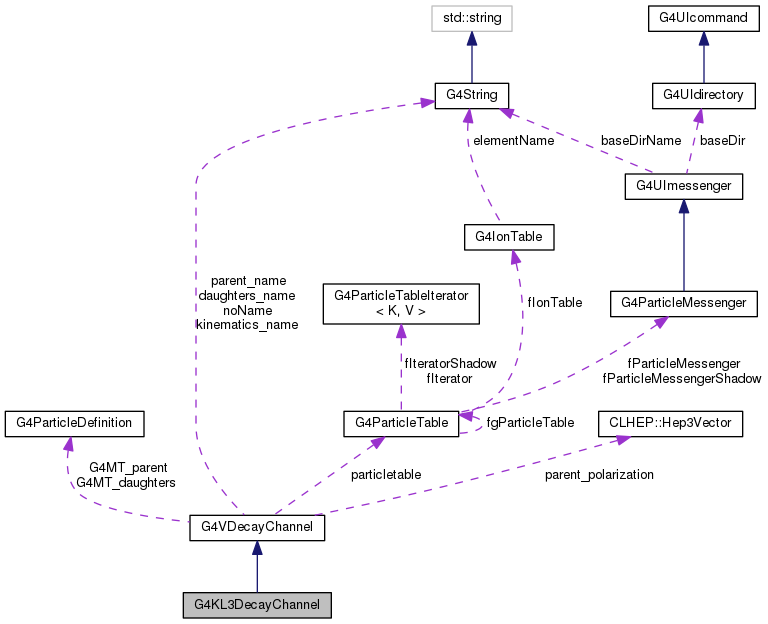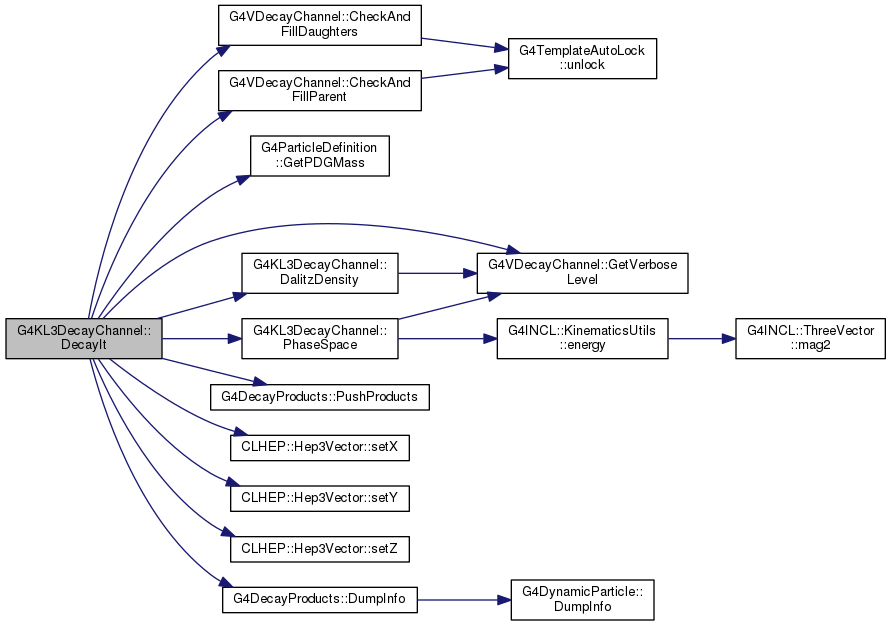172 G4double daughterP[3], daughterE[3];
175 const size_t MAX_LOOP = 10000;
176 for (
size_t loop_counter=0; loop_counter <MAX_LOOP; ++loop_counter){
178 PhaseSpace(massK, &daughterM[0], &daughterE[0], &daughterP[0]);
180 daughterM[idPi],daughterM[idLepton],daughterM[idNutrino]);
199 delete parentparticle;
202 G4double costheta, sintheta, phi, sinphi, cosphi;
203 G4double costhetan, sinthetan, phin, sinphin, cosphin;
207 sintheta = std::sqrt((1.0-costheta)*(1.0+costheta));
209 sinphi = std::sin(phi);
210 cosphi = std::cos(phi);
211 direction =
new G4ThreeVector(sintheta*cosphi,sintheta*sinphi,costheta);
218 costhetan = (daughterP[1]*daughterP[1]-daughterP[2]*daughterP[2]-daughterP[0]*daughterP[0])/(2.0*daughterP[2]*daughterP[0]);
219 sinthetan = std::sqrt((1.0-costhetan)*(1.0+costhetan));
221 sinphin = std::sin(phin);
222 cosphin = std::cos(phin);
223 direction->
setX( sinthetan*cosphin*costheta*cosphi - sinthetan*sinphin*sinphi + costhetan*sintheta*cosphi);
224 direction->
setY( sinthetan*cosphin*costheta*sinphi + sinthetan*sinphin*cosphi + costhetan*sintheta*sinphi);
225 direction->
setZ( -sinthetan*cosphin*sintheta + costhetan*costheta);
239 G4cout <<
"G4KL3DecayChannel::DecayIt ";
240 G4cout <<
" create decay products in rest frame " <<
G4endl;
241 G4cout <<
" decay products address=" << products <<
G4endl;
void CheckAndFillDaughters()
CLHEP::Hep3Vector G4ThreeVector
G4int PushProducts(G4DynamicParticle *aParticle)
G4ParticleDefinition * G4MT_parent
G4ParticleDefinition ** G4MT_daughters
G4double DalitzDensity(G4double parentmass, G4double Epi, G4double El, G4double Enu, G4double massPi, G4double massL, G4double massNu)
static constexpr double rad
static constexpr double twopi
G4GLOB_DLL std::ostream G4cout
G4int GetVerboseLevel() const
G4double GetPDGMass() const
static constexpr double GeV
G4String ** daughters_name
void PhaseSpace(G4double Mparent, const G4double *Mdaughter, G4double *Edaughter, G4double *Pdaughter)
void CheckAndFillParent()


 Protected Member Functions inherited from G4VDecayChannel
Protected Member Functions inherited from G4VDecayChannel Protected Attributes inherited from G4VDecayChannel
Protected Attributes inherited from G4VDecayChannel Static Protected Attributes inherited from G4VDecayChannel
Static Protected Attributes inherited from G4VDecayChannel






